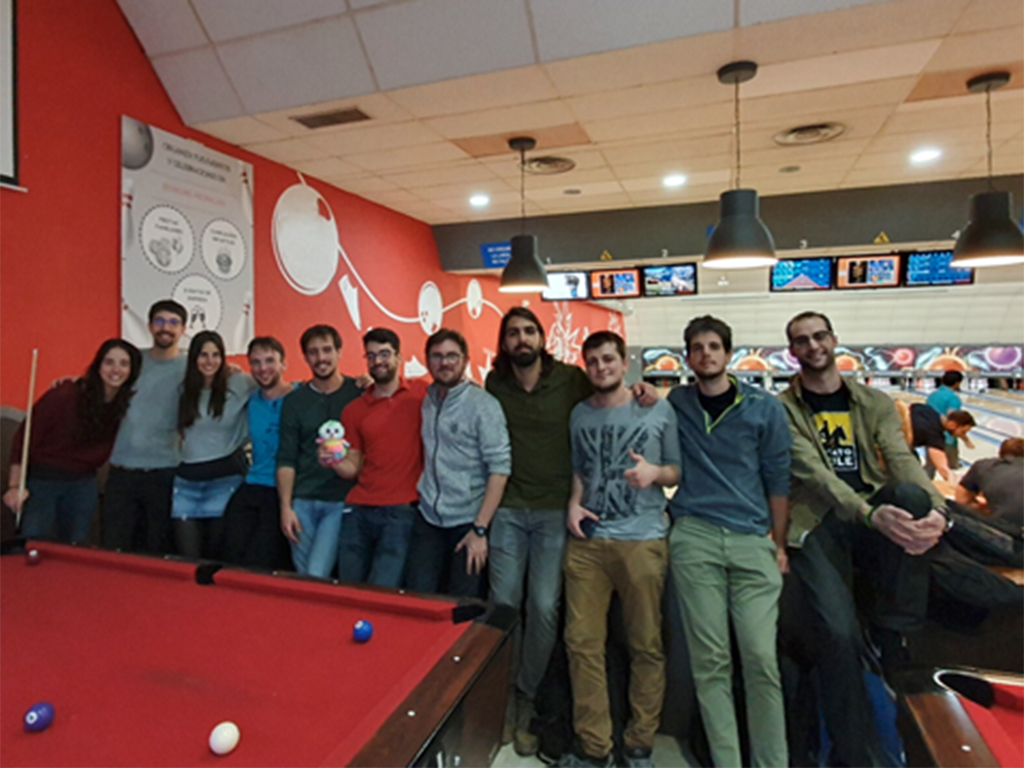
Meeting the partners — UPC. How technology is used to connect and educate the rare disease world.

Universitat Politècnica de Catalunya – BarcelonaTech (UPC) is a public institution for research and higher education in engineering, architecture, sciences, and technology. By providing solid education to foster research and development in various technical fields, it aims to improve the well-being of society.
Alexandre Perera Lluna is head of the Research Center for Biomedical Engineering at UPC and is leading the B2SLab, a lab that performs signal processing, machine learning and statistical pattern recognition towards research. “UPC is a public university driven by a sense of responsibility towards the society it serves. We promote equal opportunities within society and engage in different collaborations and volunteering projects around the world”.
Within Share4Rare, Alex leads its team to provide technical solutions for data processing, analysis and visualisation. He explains: “We design, develop and maintain the Artificial Intelligence (AI) system for automatic data extraction, processing and representation. This will provide valuable insights for patient communities and research data in Share4Rare while giving the platform user an optimal experience”.
Throughout the project, Alex’s team learned a lot about rare disease patients and their challenges. “The biggest handicap for rare disease patients is the lack of information about their condition. Next to feeling isolated, patients also feel uncertainty, which is even more prominent if they have yet to receive a diagnosis. We found out that there is a massive gap between the resources available in different countries”.
This project aims to bring rare disease stakeholders together: patients and caregivers, patient organizations, healthcare professionals, and researchers - to build a community. “New knowledge is generated from all these different sources of expertise and experience: both curated by specialists and generated from the research initiatives in the platform”. Alex continues. “Next to this research part, Share4Rare has an online community in which we hope to fight that feeling of isolation. The access to healthcare professionals and researchers from different countries might help to share resources and knowledge from more developed countries to patients and professionals from the ones less privileged”.
Although being focused on community building and awareness raising, a serious chunk of the project work is dedicated to technology. The values of the Share4Rare project align with the ones of UPC.
"We truly believe that AI and data science can improve people’s lives"
"A patient-centered platform, based in solid ethics, inclusive values, knowledge sharing, collaboration, responsible AI and selflessness, seems a very appropriate setting for UPC to provide our technical expertise for the common good”.
By working on Share4Rare, Àlex hopes to gain experience about different rare disease communities in terms of learning their needs. But also, he mentions: “about better ways to provide data-based solutions in online, collaborative and healthcare-centered communities".
A surprising insight that became clear after the launch of the project was the undiagnosed patient community, which was larger than initially thought. “We try to design our technology to include them and help them cope with the senses of isolation, misunderstanding and uncertainty. We aim to further develop solutions to their problems. We have learned that in developing solutions for an end-user we have to ignore our preconceptions about the technology and carefully listen and share ideas to adapt the results to a lay end-user”.
Àlex ends with a clear statement: “For my team, this project will be successful when patients gain knowledge and new insights about their condition, and also when the platform is intuitive and friendly to interact with, so people are able and willing to contribute. Then we will know that the foundation for the platform is finally built”.

